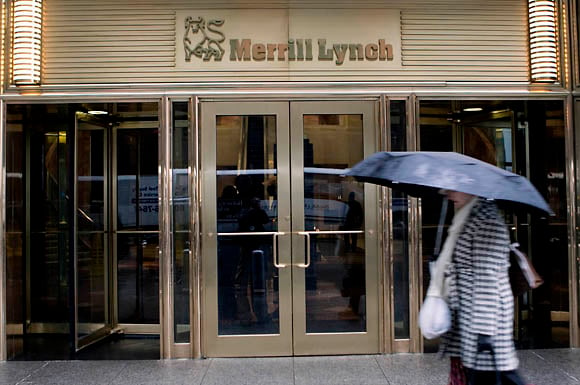Client retention has to be one of the big reasons behind the developments Bank of America Merrill Lynch announced today, namely new enhancements to Merrill's Edge platform for self-directed investors.
Today's announced enhancements include a streaming trading platform called Merrill Edge Market Pro.
With it investors on the system have access to integrated trading, account information as well as streaming market data and proprietary research.
There is also a pretty simple pricing structure: All stock and exchange-traded-fund trades are each a flat $6.95.
I told you about the big launch of the fully unified
Merrill Edge platform last January.
It was meant specifically for BofA and Merrill's mass affluent clients, those with $50,000 to $250,000 in investable assets.
Edge was the result of the migration and merging of Banc of America Investment Services Inc.'s self-directed accounts, Merrill Lynch Direct and Merrill Lynch Financial Advisory Center investment accounts.
As the now departed (and wealthy) Sallie Krawcheck — at the time the president of Bank of America Global Wealth & Investment Management — said at the time: “It's a startup but one with $60 billion in assets already.”
BofA Merrill Lynch throwing lower net worth clients a bone
While I am drawing my own conclusions here, these developments should help to cushion the blow — or at least act as positive points that advisers in the Merrill Lynch Wealth Management division can use in talking with lower net worth clients they are relinquishing as part of BofA Merrill's new minimum account size per household of $250,000.
Previously, the minimum for clients signing on with Merrill Lynch Wealth Management was $100,000.
As my colleague,
Andrew Osterland recently reported, the firm will continue to pay advisers their retail compensation rates on existing accounts in the $100,000 to $250,000 range, but advisers will only get a 20% payout on new clients with less than $250,000 in assets.
If more than 20% of an adviser's book is comprised of these smaller clients, the firm won't pay at all for new clients below the threshold.
Hence it certainly makes sense to provide those clients more in the way of self-service features on the Edge platform to help prevent them jumping ship.
And it does appear that thus far, no other wirehouse firm has the range of offerings and features in its self-service systems.
Other things to come as part of today's announcement include access to more fixed income products (for example online trading of corporate, agency, municipal and treasury securities)
The Edge will now also have expanded to mutual funds, 800 of them from more than100 fund families.
Investors on Edge (pun intended) can sign up to receive trade execution, market and news alerts in HTML or text-based emails too.
I'll seek some additional input on this news and my conclusions and will update the post with anything particularly pertinent or colorful later.
Related stories:
Merrill Lynch raises the bar for small brokers
A leg up for mass affluent clients at Bank of America Merrill Lynch







